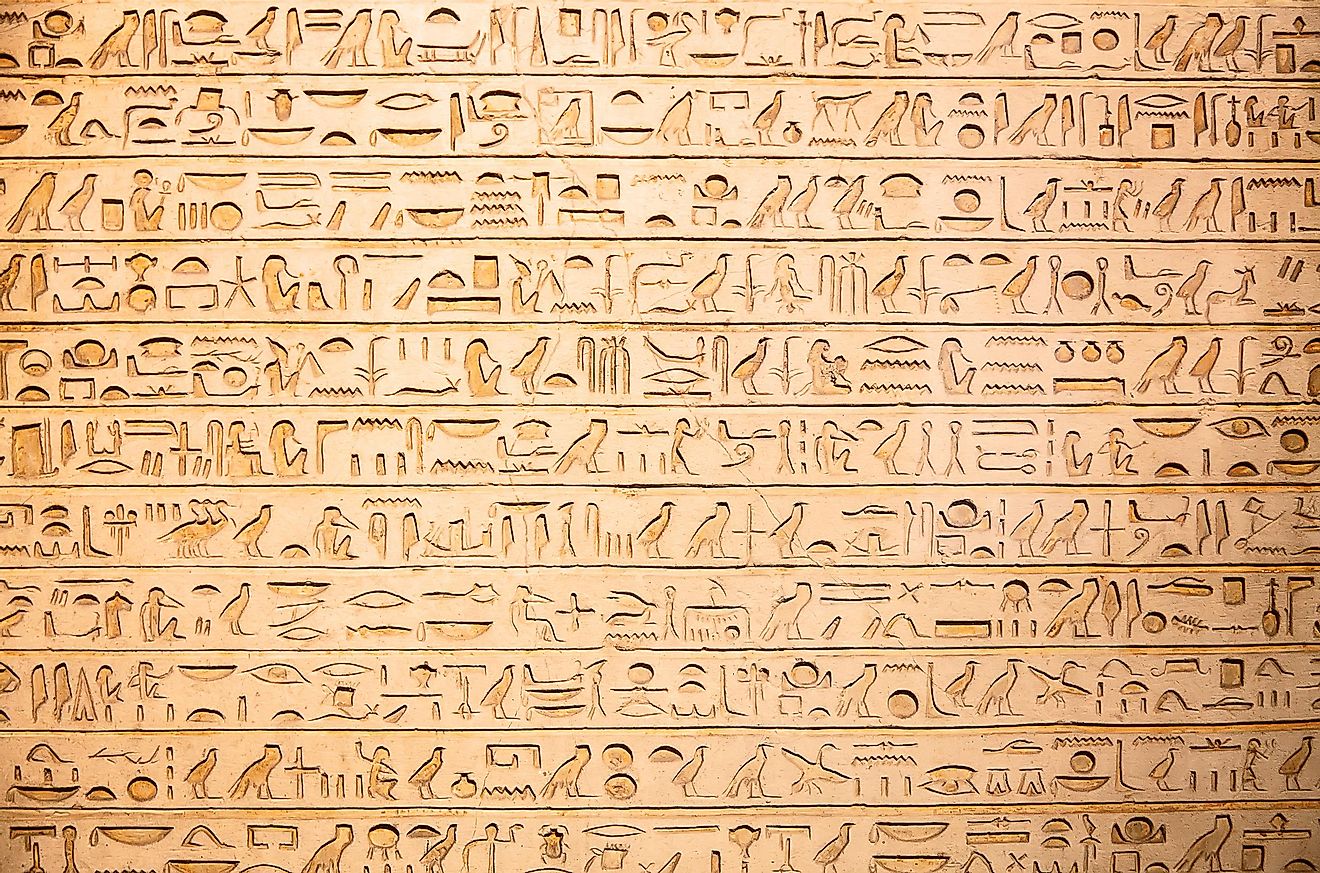The Egyptian People - Cultures of the World

5. Description
The rich Egyptian culture has been alive and well for thousands of years. As a matter of fact, it was among one of the earliest well-developed civilizations known to mankind, and has greatly influenced humanity's progress and development as a whole. The modern country of Egypt can be found in the north of the continent of Africa bordering the Middle East and Mediterranean regions. The nation covers a land area of 618,544 square miles (995,450 square kilometers), making it one of the thirty largest countries in the world today. Based on hieroglyphic inscriptions found preserved on sheets of papyrus, and countless ancient structures still standing up to this day, the Egyptian language was among the first languages ever to be expressed in written form. Today, most Egyptians speak Arabic, and their unique brand of Arabic is one of the most widely used "second dialects" of all of the Arabic-speaking countries.
4. Architecture
Most modern Egyptians live in villages and cities, with the former being the primary residential section, typically enclosed by vast agricultural lands. Rural houses are often constructed out of mud- and clay-based bricks, with stables often incorporated into each one of them. Urbanized Egyptians, on the other hand, typically reside in rented apartments, especially in crowded Cairo. In this metropolis, the layout and architecture of its historical buildings showcase the many historical epochs that have defined much of mankind's history. Perhaps the most renowned example of the different historical epochs in Egyptian architecture are the pyramids, built during the Old and Middle Kingdoms of Ancient Egypt as burial tombs for various pharaohs. With the many economic advancements occurring in Egypt today, it is only logical for urban and residential areas to be seen expanding into the desert and the coastline, especially along the Sinai Coast and Western shores of the Red Sea.
3. Cuisine
Eating is one of the most important parts of Egyptian culture. Of all their dishes, the most common are the iconic bread loaves, prepared mostly with the use of mud ovens. Many native Egyptian dishes are made predominantly of legumes. One such primary dish is made of fava beans simmered over low heat, typically seasoned with lemon, salt, oil and cumin, and consumed in the morning as part of breakfast. Falafel is also another common dish, prepared with crushed fava beans, onions, and leeks, while koshari is a national dish made out of of rice, macaroni and black lentils. While various meats, fowl, and seafood are used at times, it is easy to see why many vegetarians are so attracted to the legume- and grain-dominated fare of Egypt.
2. Cultural Significance
Being one of the first major civilizations, the Egyptians were also one of the first to produce works of art that were incorporated with attractive design principles as we would know them today. Each wall painting, statue, and illustration will usually have specific meanings, and follow strict regulations. Alexandria was where everything happened in Ancient Egypt following the Macedonian conquests, and this city would go on to produce many of this world’s greatest astronomers, scholars, scientists and mathematicians in the years leading up to and following the start of the Common Era (AD). Egyptian authors were among the first to employ modern Arabic languages in literature, and much of what they produced has been widely published all over the Arabic world. Some examples of well-known Egyptian writers include Alifa Rifaat, Nawal El Saadawi, and Naguib Mahfouz.
1. Threats
There is no doubt that modern Egypt is facing significant security issues, many of which have been brought about through the actions of local and international terrorists alike. Apart from that, they are also greatly affected by food shortages, while their government hospitals are stretched beyond capacity. It is for such reasons that their current Prime Minister is taking measures in securing stable food sources, as well as eliminating the most serious of threats by way of strengthened policies against terror.







